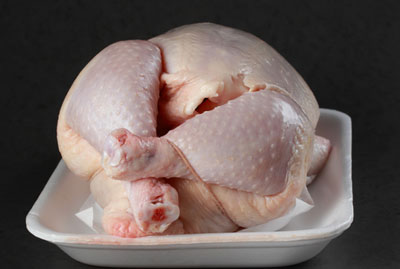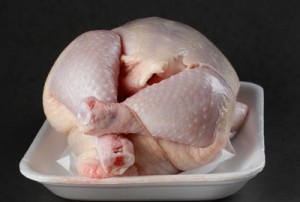FSA publishes final report on Campylobacter on chickens
- Like
- Digg
- Del
- Tumblr
- VKontakte
- Buffer
- Love This
- Odnoklassniki
- Meneame
- Blogger
- Amazon
- Yahoo Mail
- Gmail
- AOL
- Newsvine
- HackerNews
- Evernote
- MySpace
- Mail.ru
- Viadeo
- Line
- Comments
- Yummly
- SMS
- Viber
- Telegram
- Subscribe
- Skype
- Facebook Messenger
- Kakao
- LiveJournal
- Yammer
- Edgar
- Fintel
- Mix
- Instapaper
- Copy Link
Posted: 10 September 2015 | Victoria White | No comments yet
The report is an analysis of the data from the survey carried out by the FSA between February 2014 and March 2015, which showed the levels of Campylobacter on 4,011 samples of whole, UK-produced, fresh chicken…


The Food Standards Agency (FSA) has published the final report of its year-long survey of Campylobacter levels on UK fresh shop-bought chickens.


The report is an analysis of the data from the survey carried out by the FSA between February 2014 and March 2015, which showed the levels of Campylobacter on 4,011 samples of whole, UK-produced, fresh chicken.
The results for the full year, as previously published, showed:
- 19% of chickens tested positive for Campylobacter within the highest band of contamination
- 73% of chickens tested positive for the presence of Campylobacter
- 0.1% (five samples) of packaging tested positive at the highest band of contamination.
- 7% of packaging tested positive for the presence of Campylobacter.
The survey results allowed consumers for the first time to compare the Campylobacter levels found on chickens from all of the major retailers. The final report contains data sets of the results from all of the retailers and includes comparisons between different sized birds. In the report, compared against the industry average, Tesco had the lowest proportion of highly contaminated chickens, while ASDA had the highest.
Industry to reduce the number of the most contaminated birds to less than 10% by the end of the year
Campylobacter is the most common bacterial cause of foodborne illness in the UK, with chicken considered the most important vehicle for this organism. The FSA has been working closely with the food industry to reduce the levels of contamination on raw chickens. The industry is working towards a target, agreed with the FSA, to reduce the number of the most contaminated birds to less than 10% by the end of 2015.
Steve Wearne, Director of Policy at the FSA, said, “The FSA’s retail survey has been an important part of our work to tackle Campylobacter. Thanks to the focus the survey has put on the industry, retailers and processers are starting to invest in new interventions to tackle the bug.
“Our new retail survey, which is already underway, will allow us to track progress and give us an indication of where these interventions are delivering results.”









